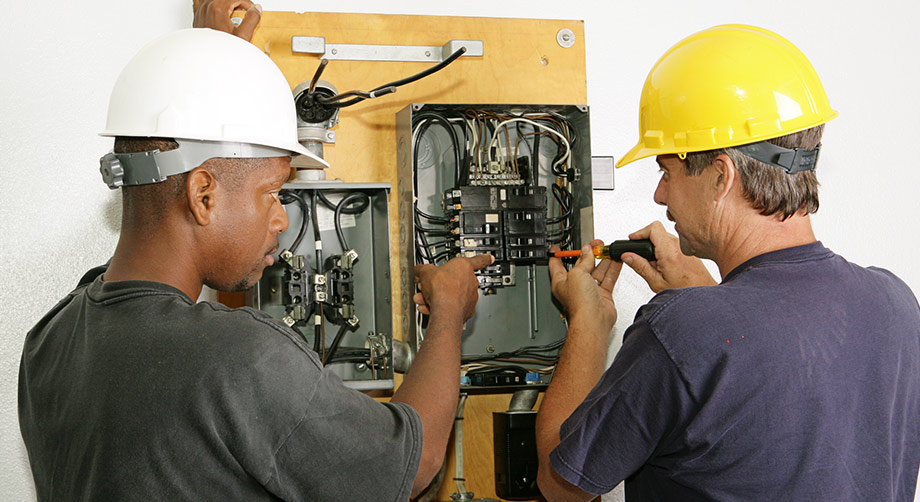Difference between an automotive technician and an auto mechanic
Difference Between an Automotive Technician and an Auto Mechanic
If you’re looking for a new career in the mechanical sciences industry, you’ve probably heard that one of the most popular areas you can consider is automotive technology. With more cars on the road today than ever before—and more complex tech running those cars than ever before—technicians and mechanics are essential to keeping America’s drivers on the go.
But some of the terminology can get confusing. For instance, what's the difference between a technician and a mechanic?
Practically, the two are often used interchangeably to refer to anyone who works on cars. But in some cases, there can be a real difference between the type of work they do.
Mechanical Mechanics
Auto mechanics are often the ones you think of crawling under the hood, grease up to their elbows, using hand tools to perform maintenance and complete repairs. And this is still true today for many who work on cars for a living.
But as cars have evolved, so have the jobs. While your title may be automotive mechanic, there’s no escaping the computerized and electronic components that cars rely on to run properly. Mechanics may still specialize in the machinery, but they must be familiar with the technology too.
Technology Technicians
When most people today think of an automotive technician, they’re less likely to think of someone underneath a car with a wrench in their hand and more likely to think of someone reviewing performance data on a screen.
With the millions of lines of code that most cars rely on these days, a firm grasp of the technology is what many auto techs specialize in. They’re often more concerned with diagnosing issues, solving electronic problems, and optimizing performance. And that's never been truer than with the trends toward electric cars and away from our reliance on gas.
Automotive Workers
Regardless of the specializations and common distinctions between the two, all auto workers need to be able to keep up! They'll need to be plenty familiar with both sides of the coin—and ready to learn about the tech and trends the industry hasn't even thought of yet. Because at the end of the day, cars just need to function (both mechanically and technologically) for their drivers. Automotive workers must be ready to make that happen for their customers.
Automotive Training
If you’re ready to pursue a career in the field, most automotive service technicians and mechanics have training in automotive technology, automotive and diesel technology, or collision and repair. But you can even get manufacturer-specific training if you want to specialize in working with leading brands in the industry.
Think you're ready to become an auto mechanic or technician? The Imagine America Foundation has a database of schools you can easily search to find hands-on automotive programs in your area. IAF is proud to work with partner institutions like Universal Technical Institute, who offers training programs in a variety of technical fields—including automotive technology.
More on Automotive
Narrowing the Skills Gap: The UTI Way
Sponsored by: The Skills Gap. We’ve been talking about it for years. It’s a real problem in our world today, yet the gap is not narrowing. It’s talked about in many educational circles. At Universal Technical Institute, we are taking a proactive approach as we…
Diesel Technician Careers with Ohio Technical College
Diesel Technician Careers with Ohio Technical College – Season 4 episode 11 MORE FROM OUR EPISODE With Ohio Technical College Where Is Their Campus Located? OHIO TECHNICAL COLLEGE — CLEVELAND Visit Their Website Location 1374 E 51st StreetCleveland, OH 44103 Contact OHIO TECH Phone: 1-800-322-7000…
1 Comment
Leave a Reply Cancel reply
- - ADVERTISEMENT - -
Categories
- Alumni Series (13)
- Automotive (57)
- Aviation (15)
- Business (14)
- Business & Arts (18)
- Career College Expositions (7)
- Career Development (96)
- CCC Blog (1)
- CCC Podcast (9)
- College Resource (90)
- College Showcase – Lincoln Tech (6)
- College Showcase – New Jersey (8)
- College Showcase – Pennco Tech (1)
- College Showcase – Universal Technical Institute (2)
- Continuing Education (154)
- Cosmetology (3)
- Counselor Resources (108)
- Criminal Justice (3)
- Dental Assistant (2)
- Education (109)
- Financial Literacy (17)
- Health Sciences (50)
- Heritage Series (3)
- High School Recruitment Series (4)
- Housing Series (10)
- HVAC (8)
- Imagine America Scholarships (12)
- Information Technology (17)
- Massage Therapy (5)
- Mechanical Sciences (109)
- Medical Assistant (12)
- Millennial Student Series (4)
- News (11)
- Nursing (22)
- Online education (13)
- Pandemic Proof Series (4)
- Personal Finance (17)
- Podcast (90)
- Research (11)
- Road Map Series (2)
- Scholarships (12)
- Social Media Series (4)
- Strata Tech (3)
- Student Success (29)
- Study Tips (3)
- Time Managment (1)
- Top 10 (10)
- Trucking (2)
- Uncategorized (14)
- Universal Technical Institute (19)
- Veteran Affairs (8)
- Welding (24)
- Women in Skilled Trades (3)
Tags
- - ADVERTISEMENT - -








Really informative article! An associate degree can be really helpful for someone pursuing a career as an automotive technician. Companies prefer such trained certified mechanic technicians, as they have to spend less time training them on the job. The salary is also higher for those with an associate degree.